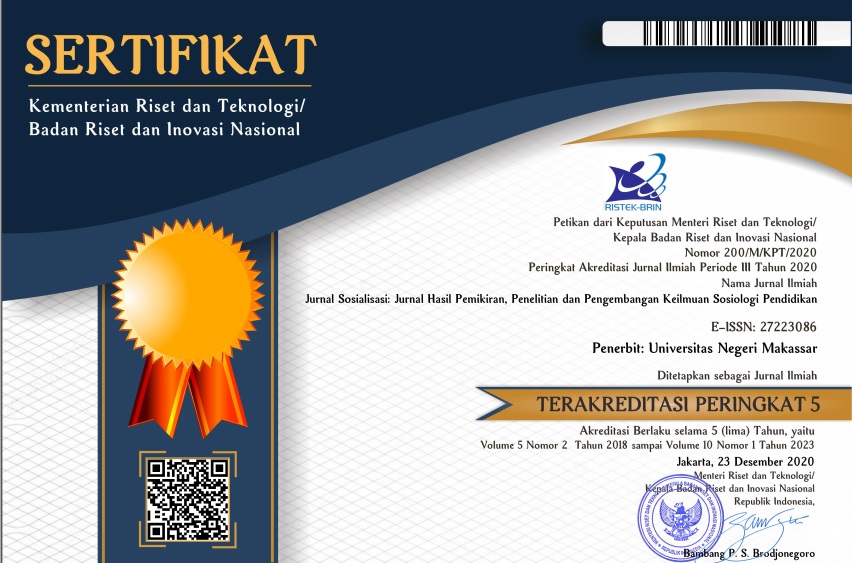A Philosophical Cum Religious Extrapolation of the Cognitive Postulates of St. Thomas Aquinas
(1) University of Calabar,
(2) Nnamdi Azikiwe University
(*) Corresponding Author
DOI: https://doi.org/10.26858/sosialisasi.v1i1.32251
Abstract
This research focuses on analytic evaluation of St. Thomas Aquinas’ gnoseological debate, which is extrapolated from his philosophical and religious/theological views. Plato’s epistemic tradition championed by St. Augustine held sway seemingly in the entire medieval epistemic discourse before the arrival of Aquinas on the epistemic rostrum. The epistemological preamble, which verifies the value of our knowledge, was not ignored by Aquinas when he came on board to philosophize and theologize. After St. Augustine toed the line of Plato in his epistemic positions, Aquinas adopted the style of Aristotle in his epistemic postulates. As a churchman, Aquinas parted ways with Aristotle in almost all his gnoselogical conclusions. Similarly, Aquinas did not subscribe to St. Augustine’s idea of illumination and employed Aristotle’s theory of abstraction as the way knowledge can be derived. Aquinas based the truth of knowledge as evidence of being on objective condition unlike St. Augustine who anchored the truth of knowledge on certainty or any subjective disposition. This radical shift by Aquinas from the position of his predecessors is construed in this study as a way of cognitive expansion and solidification and not a problem as such. In this work, historical, textual, contextual, and analytic methods were adopted proximately or remotely.
Keywords
Full Text:
PDFArticle Metrics
Abstract view : 508 times | PDF view : 20 timesRefbacks
- There are currently no refbacks.

This work is licensed under a Creative Commons Attribution 4.0 International License.


































